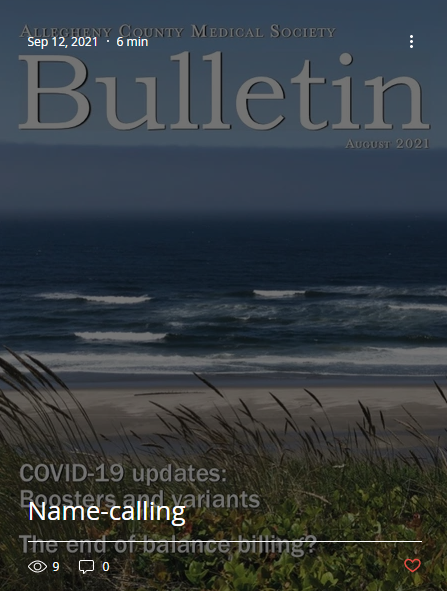
As we enter a new era of the COVID-19 pandemic, the benefits of a vaccine booster at this time remain uncertain. The mRNA vaccines (Pfizer and Moderna) usually result in creating high antibody titers for at least six months in immunocompetent hosts. After that, it appears that the antibody titer may start to wane. However, it remains unclear if these titers directly correlate with protection, since other aspects of the immune system also are stimulated by these vaccines. In those who have underlying immunosuppression, including transplant recipients and cancer patients undergoing chemotherapy, the antibody response is often less robust. Because of their relatively poor antibody response, the FDA recently approved an additional booster vaccine dose for individuals with solid organ transplants or equivalent immunosuppressed status.
It is clear that the current vaccines offer significant protection against the delta variant, which is now the predominant coronavirus strain in our region. Although there are “breakthrough” infections occurring in those who have been vaccinated, these individuals appear to have good protection against developing severe disease and appear to be contagious to a lesser degree. Many experts, however, believe that future variants may develop increasing resistance to our current vaccines, and it is quite possible that at some point boosters will be beneficial – similar to the need for flu vaccine boosters. Vaccine manufacturers are currently investigating the need for booster vaccines, some with improved activity against recent variant strains.
Having been vaccinated one year ago as part of the Moderna study, and knowing that there are “breakthrough” cases, I continue to be cautious in what I do and where I go. I wear masks when in stores or other enclosed public buildings and prefer outside dining if eating out. Recently, many employers and colleges have begun to mandate vaccination for their employees and students. We continue to require masking of all patients and employees inside our medical facilities.
As medical professionals, I believe that we should do our best to persuade the unvaccinated to get the shot. It is now quite evident that receiving the vaccine can be the deciding factor between staying healthy or ending up in the hospital fighting for your breath, or even your life. Frequently, I will use real-case scenarios with bad outcomes in an effort to convince those who are reluctant. It is sometimes quite frustrating because there are quite a few who continue to refuse. I also let them know that they are putting not only themselves at risk, but those with whom they come into contact.
I strongly encourage all of my colleagues to continue to urge vaccination and preach the proven value of masking and maintaining social distance as long as the coronavirus continues to be a threat.
Dr. Pontzer is chief, Division of Infectious Diseases, UPMC St. Margaret Hospital, clinical associate professor of Medicine, University of Pittsburgh School of Medicine. He is the current treasurer of ACMS and can be reached at [email protected].

